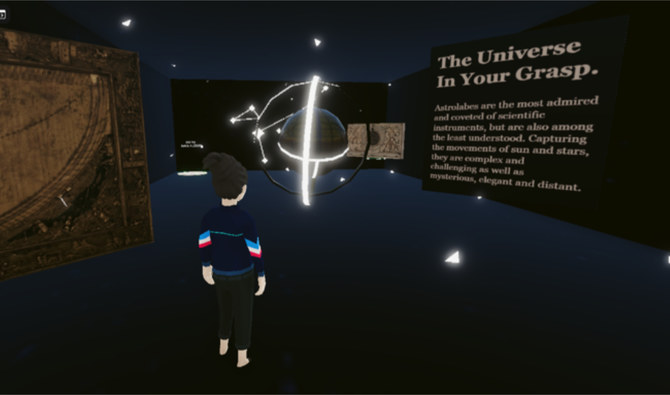RIYADH: Prince Alwaleed bin Talal’s Alwaleed Philanthropies conducted a case study on the metaverse to measure users’ responses to verbal abuse in a virtual space.
AP Secretary-General Princess Lamia bint Majed said that the main goal of the study was to “capture a jarring discrepancy between the standards of social conduct in immersive spaces, versus what’s typically considered as acceptable behavior in the physical world.”
After receiving “unsettling reports citing abusive behavior” via its Digital Center on the Metaverse, AP decided to launch the study to advocate for meaningful change.
The social experiment was performed on artificial simulations acting as perpetrators and victims.
Users’ avatars were created to appear of different ethnic and religious backgrounds. The experiment observed users’ willingness to intervene in situations with discrimination, and how long it would take for them to do so.
The result revealed significant disparity in kinds of abuse, particularly about ethnicity or religious orientation.
All the instances of abuse took place in congested parts of popular metaverse platforms: Decentraland, Sandbox, and Spatial.
Seventy percent of bystanders showed no response at all, and if an intervention occurred, it took an average of 2:02 minutes to occur.
In the three experiments where users were exposed to racial abuse and discrimination, no users intervened — despite taking place in typically crowded areas on the platform.
However, when the perpetrators’ avatars verbally harassed them due to their ethnic and religious backgrounds, there was a response from 2.8 percent of users.
Princess Lamia said: “We needed to show how a prevailing culture of ‘lawlessness’ in the virtual world could undermine the progress and values we fight for.”
She added: “Although we provide a snapshot of abusive behavior on the metaverse, it’s clear that more should be done to safeguard users from intolerance in virtual spaces.
“We all have a collective responsibility to drive social change, which often starts by changing mindsets.”
AP has remained committed to using its platform to combat social misconceptions and promote meaningful inclusion in the metaverse.
Its Digital Center on the Metaverse uses cultural dialogue, artistic exhibitions, and historical artifacts as tools to bridge cultures, allowing users to learn more about Islamic history and culture.
“The digital-cultural nexus is a springboard that can help raise awareness around our shared history, so we’re excited to continue working in this new and exciting space,” the princess said.
“Rather than gate-keeping cultural resources, users were able to access exhibitions and engage with new ideas in cyberspace.
“We saw how social polarization grew in digital spaces, so we thought about using the same technology to foster tolerance and inclusion through education and dialogue,” she added.
The organization has also launched Alwaleed Cultural Network in collaboration with many known institutions such as Harvard and Oxford University to promote cross-cultural dialogue through education.
Princess Lamia highlighted the importance of being responsible and accountable amid technological progress.
“We can’t let rapid technological change compromise our historic progress on inclusion and tolerance. Generally speaking, accountability always comes back to a broader sense of ‘collective good,’” she said.
“We firmly believe that accountability is, and will always be, an active pursuit. So, whether we work on expanding access to cultural resources, or advocating for better safeguarding measures on the metaverse — our message focuses on protecting the inclusion and freedom we fight for. This helps build on our social consciousness, at both the individual and community levels,” she added.






























